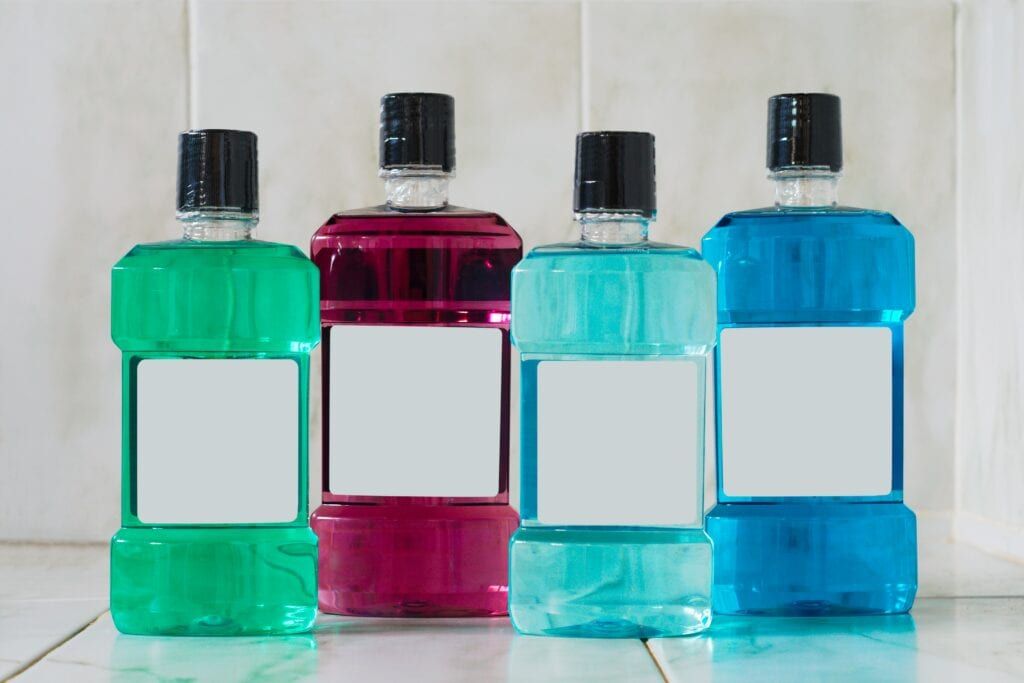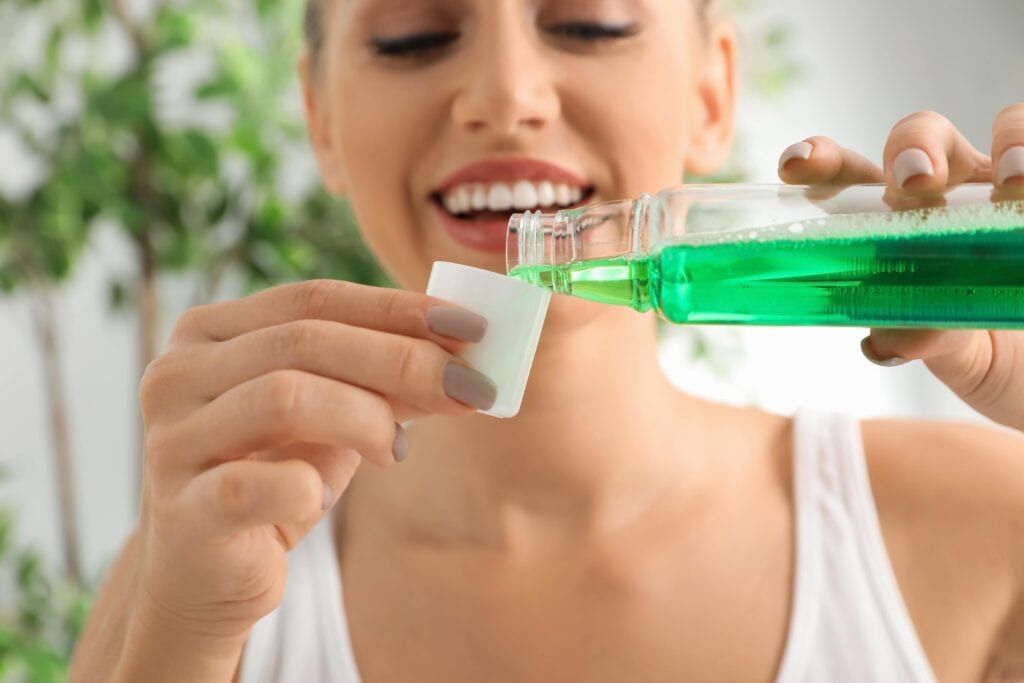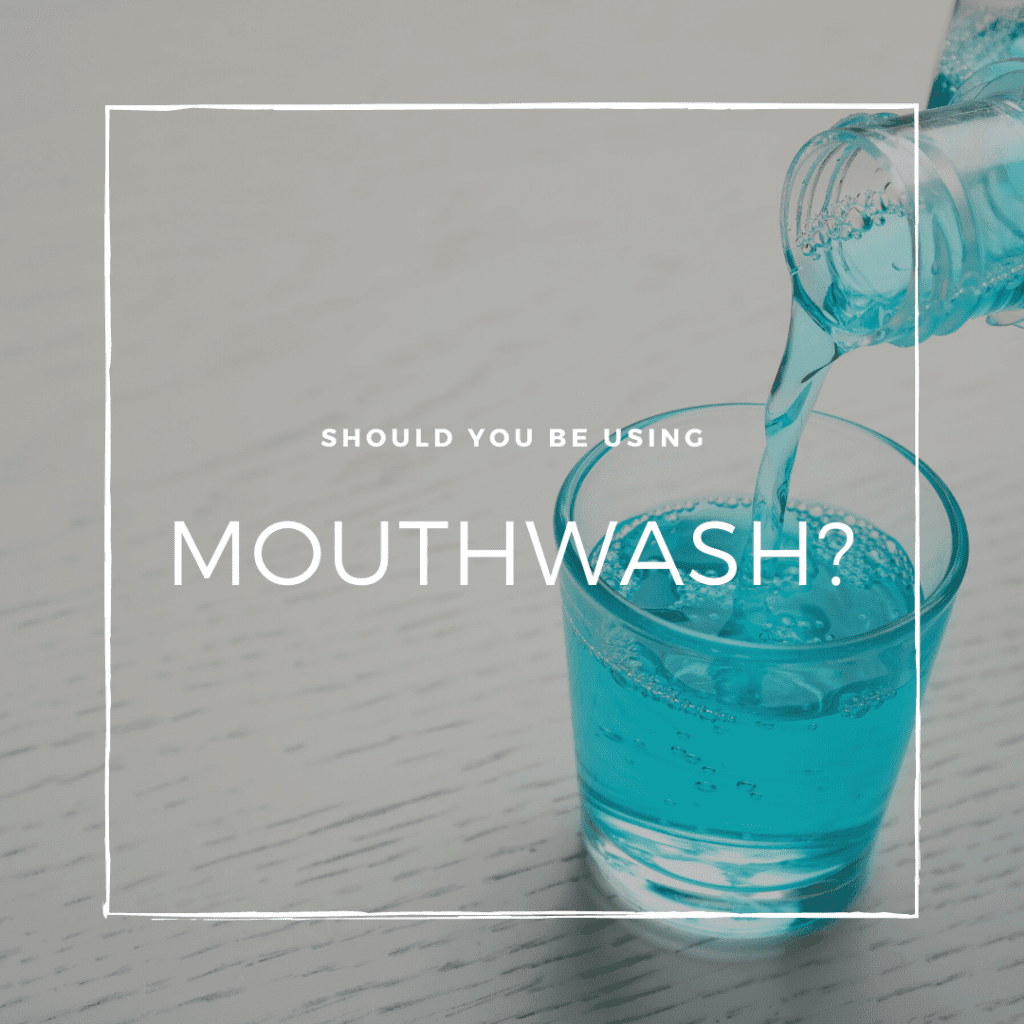Besides brushing twice a day and flossing once a day, you may be wondering if you should be also using mouthwash. While brushing and flossing are accepted as essential oral hygiene practices, daily mouthwash use is a little more ambiguous to many people. In fact, some people don’t use mouthwash simply because they don’t understand what it can do for their oral health. To help you decide whether or not you should be using mouthwash, here is a brief guide on what mouthwash is, how it works, and when mouthwash use can be especially effective.
What is mouthwash?
Mouthwash comes in a variety of colors and is found on the dental aisle beside toothpastes, toothbrushes, and dental floss. Mouthwash is also sometimes known as mouth rinse, since its main purpose is to rinse the mouth, removing debris and bacteria. However, there are other purposes to mouthwash, depending what type it is. There are two different types of mouthwash: cosmetic and therapeutic. Cosmetic mouthwashes are primarily used to remove debris and mask odors. Therapeutic mouthwashes, on the other hand, have a greater impact on your oral health.

Therapeutic mouthwashes can have an impact on your oral health because they don’t just simply mask odors. Instead, therapeutic mouthwashes contain specialized ingredients that serve a specific purpose. Here are some common ingredients found in therapeutic mouthwashes and their purpose:
- Cetylpyridinium chloride: reduces bad breath
- Chlorhexidine: found in prescription mouthwash, controls plaque and gingivitis
- Essential oils (eucalyptol, menthold, thymol, methyl salicylate): controls plaque and gingivitis in over the counter mouthwashes
- Fluoride: strengthens tooth enamel to prevent tooth decay
- Peroxide: used in whitening mouthwashes to whiten the teeth
Since therapeutic mouthwashes contain different ingredients that serve a specific purpose, it is important to consider your oral health goals to select the best mouthwash for you. For example, someone who struggles with gum disease could benefit from a mouthwash containing primarily essential oils. You should also talk to your dentist about what mouthwash is ideal for you, since certain mouthwashes, such as whitening mouthwashes containing peroxide, may be too abrasive for dental restorations.
Should YOU be using mouthwash?
Now that we know what ingredients make up mouthwash and how these ingredients can affect your oral health, let’s take a deeper look into whether or not you should be using mouthwash. Although daily mouthwash use is not nearly as imperative as daily brushing and flossing, just about anyone can benefit from daily mouthwash use. However, daily mouthwash use can be highly beneficial for individuals who have or are prone to certain oral health conditions. If you have a predisposition to any of the oral health conditions listed below, then YOU should be using mouthwash:

- Tooth decay: almost everyone will experience a cavity at some point in their lifetime, however some people are more susceptible to developing cavities. Mouthwash helps prevent cavities since it contains fluoride, which is used to strengthen the enamel and make it more resistant to decay. Fluoride can even help to remineralize a tooth that has started to demineralize during the first stage of tooth decay. Unfortunately, however, fluoride cannot reverse a cavity once it has formed.
- Gum disease: gum disease is extremely popular among the general population. It is primarily caused by plaque and bacteria that accumulate along the gum line and irritate the gums. For people with gum disease, brushing and flossing are essential practices to reduce the amount of plaque along the gum line, however mouthwash use is also recommended since it kills the bacteria that cause gum disease. Although over the counter mouthwash is effective against bacteria, there are some cases where your dentist may prescribe a chlorhexidine rinse for temporary use. It is important to only use chlorhexidine rinse as recommended, because it can stain your teeth if used incorrectly.
- Dry Mouth: dry mouth occurs when the mouth does not produce enough saliva. Without enough saliva, the mouth’s ability to clean itself and neutralize acids is compromised. As a result, people with dry mouth are more likely to develop tooth decay and gum disease. In these cases, it is recommended to use a mouthwash specialized for treating dry mouth. This type of mouthwash generally contains fluoride, as well as other ingredients that mimic saliva such as enzymes, cellulose derivatives, and/or animal mucins. An alcohol-free mouthwash should also be used, since alcohol can worsen dry mouth.
- Stained teeth: whitening mouthwashes, containing peroxide, are ideal for removing stains from the teeth to lighten their color. Most whitening mouthwashes, however, are more effective at preventing future stains than they are at removing old stains. This means that a whitening mouthwash is ideally used after having your teeth professionally whitened.


